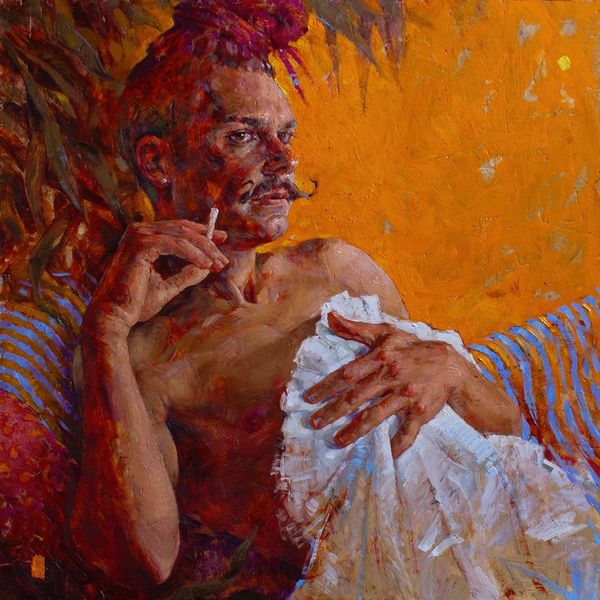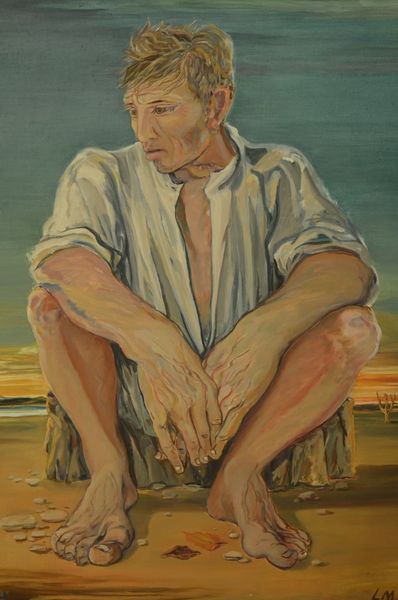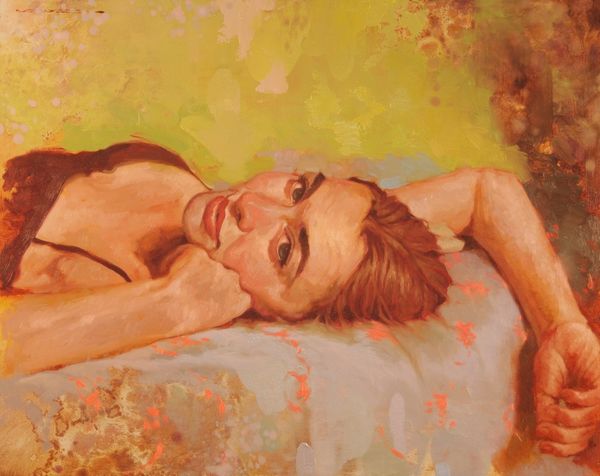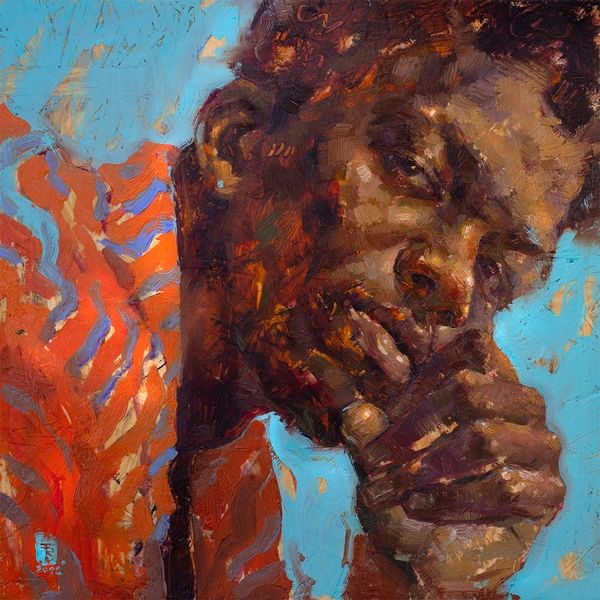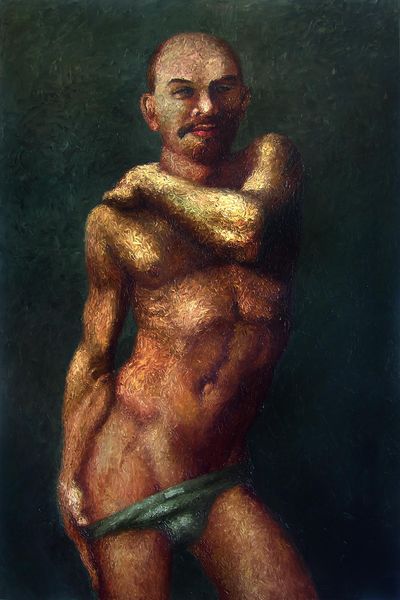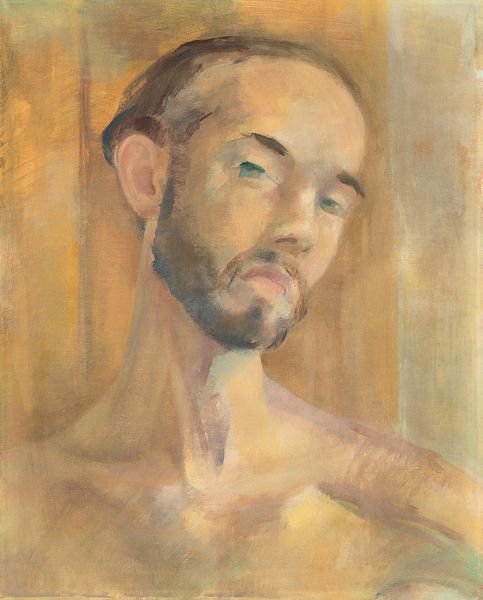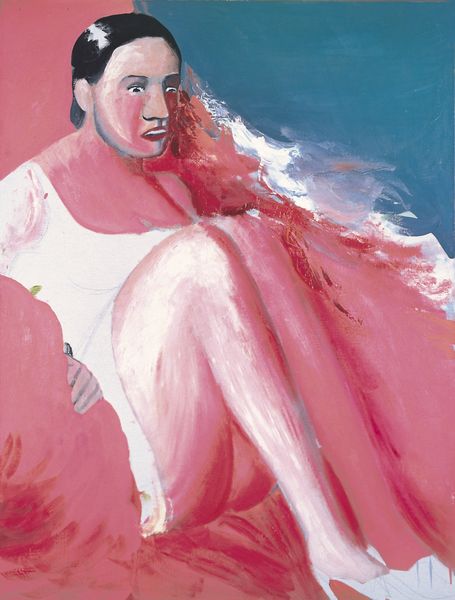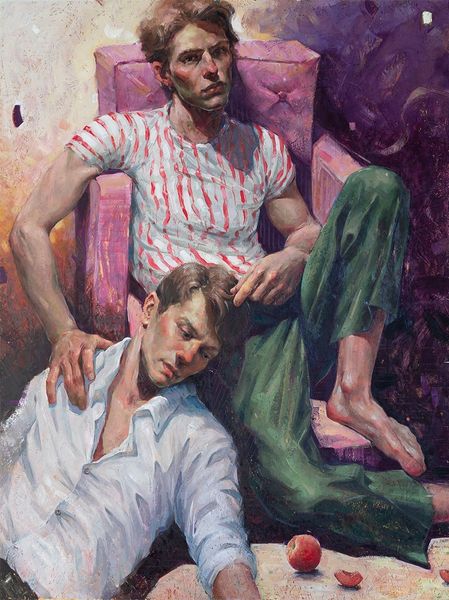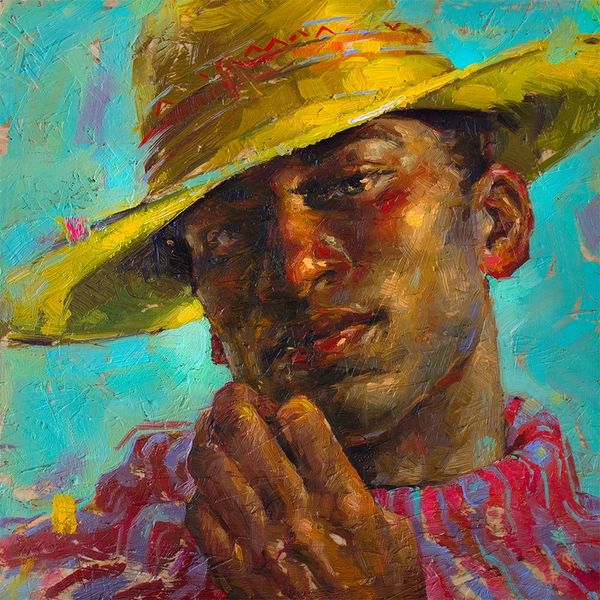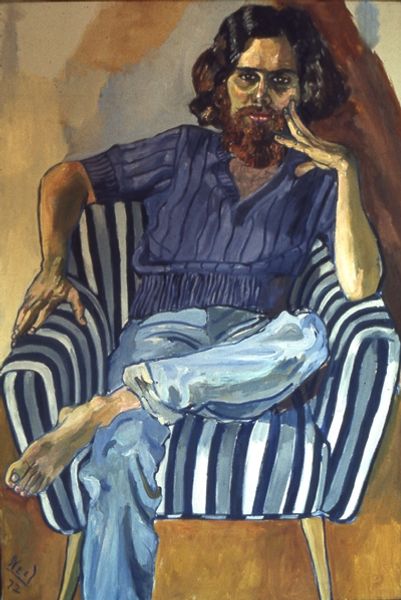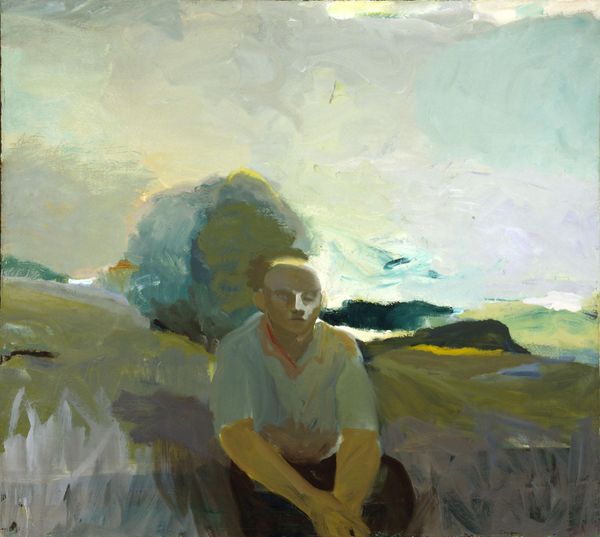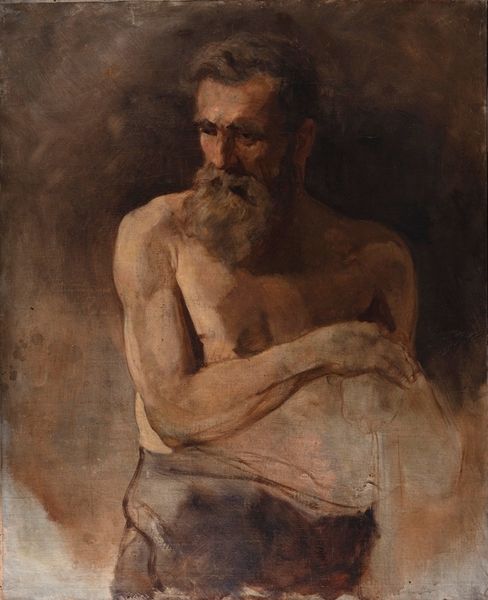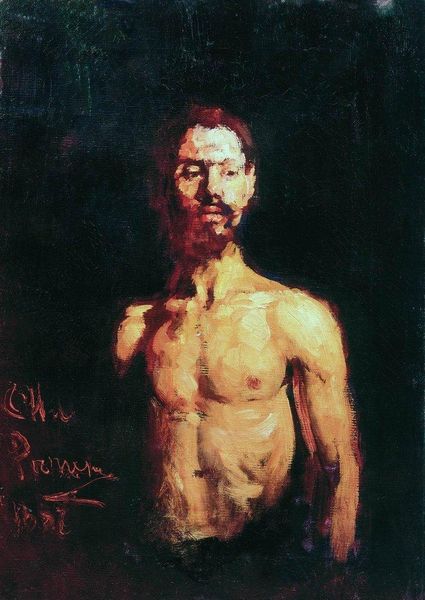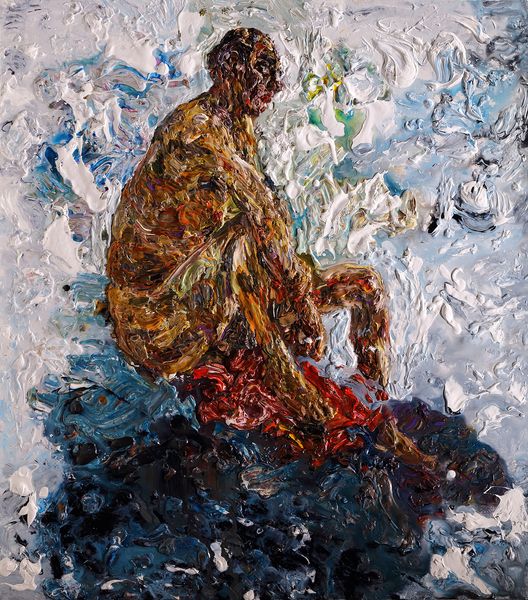
painting, oil-paint
#
portrait
#
figurative
#
painting
#
oil-paint
#
figuration
#
oil painting
#
modernism
Copyright: Modern Artists: Artvee
Editor: We’re looking at "Laurent Laurent," an oil painting by Tania Rivilis. I'm struck by how intimate and almost theatrical it feels – like the subject is posing for a gaze, and we're intruding somehow. How do you read this piece? Curator: That feeling of intrusion, I think, speaks to the politics of portraiture itself. Who is being represented and why? In this image, what societal expectations are projected onto Laurent by Rivilis, as the artist, but also by us, as viewers encountering it within a museum setting? The casual tank top and relaxed pose might suggest accessibility, but the knowing look and precisely groomed mustache complicate that, don't you think? Editor: Yes, the mustache is doing a lot of work! It feels self-conscious, maybe? And it's interesting to consider the artist's role too; Rivilis is choosing to portray him this way. What does that say? Curator: Precisely. The artist, like the museum, is a filter. By selecting and framing Laurent, Rivilis contributes to the construction of his identity – one presented for public consumption. What is Rivilis’ intention, or her potential statement about the relationship between the private and public self in modern society, in displaying him in that manner? Editor: So, it's not just about a single person, but about larger societal expectations and the performance of identity within those frameworks? Curator: Exactly. Consider how traditional portraiture has historically been used to communicate power and status. While “Laurent Laurent” breaks from those conventions with its informality, it still prompts us to ask: what forms of power are at play here? And who benefits from this particular representation? Editor: I hadn't thought about it in terms of power dynamics before. Seeing it that way gives me a totally different appreciation. Curator: It highlights the significance of viewing art not in isolation, but as active participants within complex cultural and historical conversations. I think you'll see the politics of imagery in all sorts of portraits after this discussion.
Comments
No comments
Be the first to comment and join the conversation on the ultimate creative platform.
